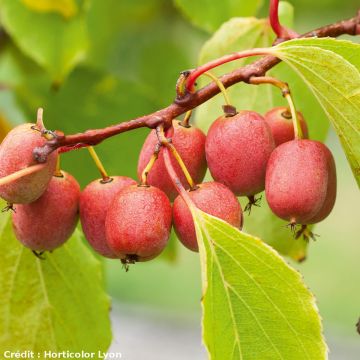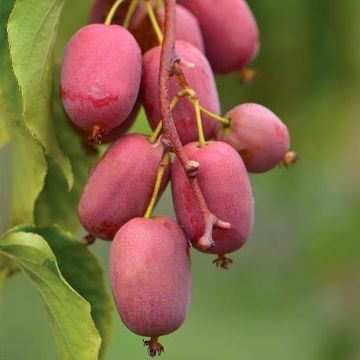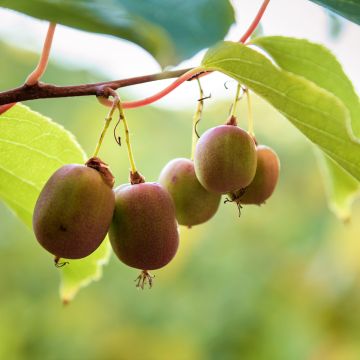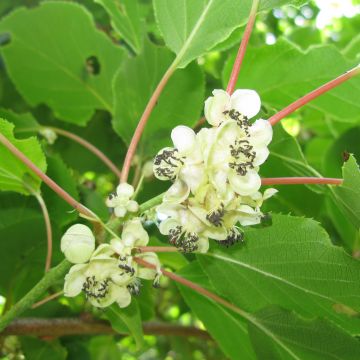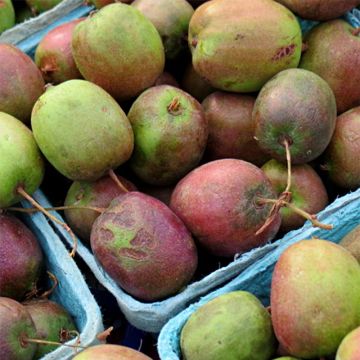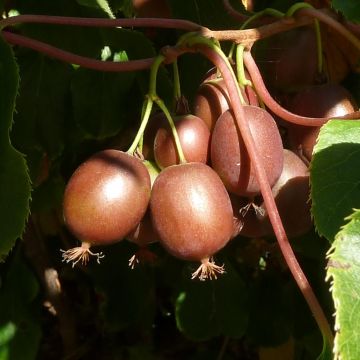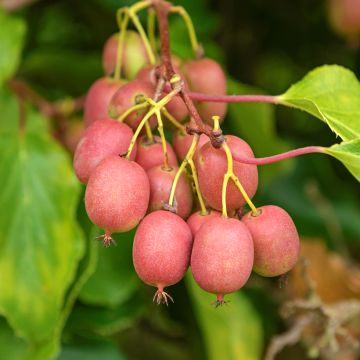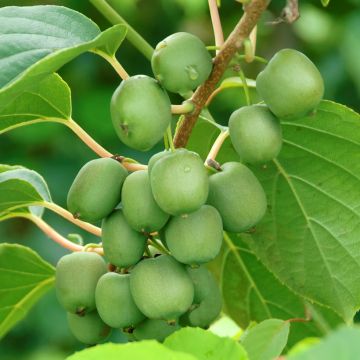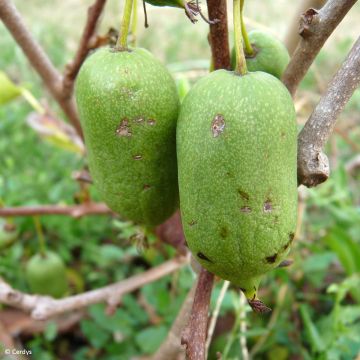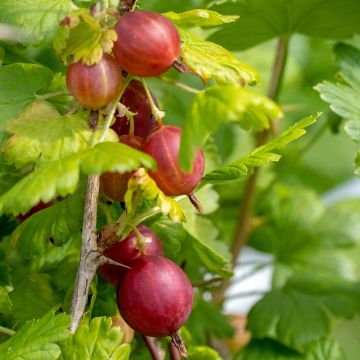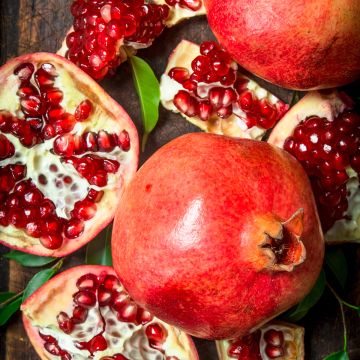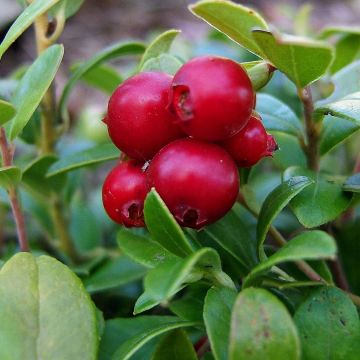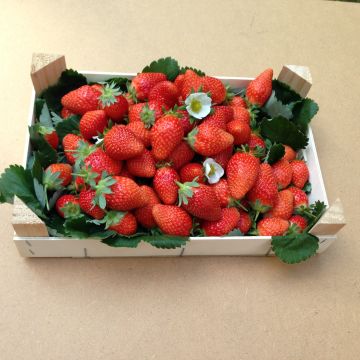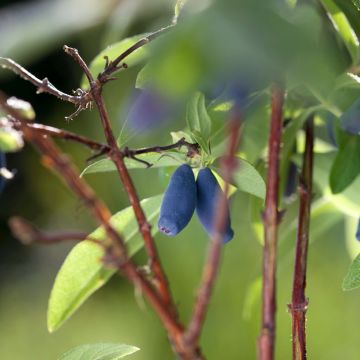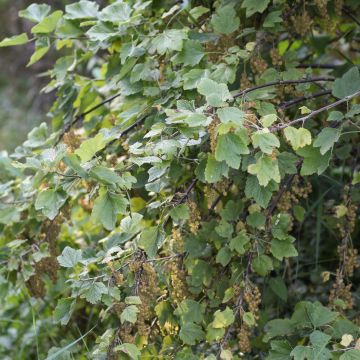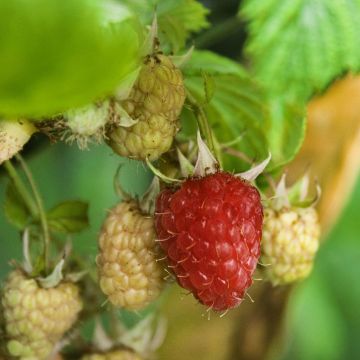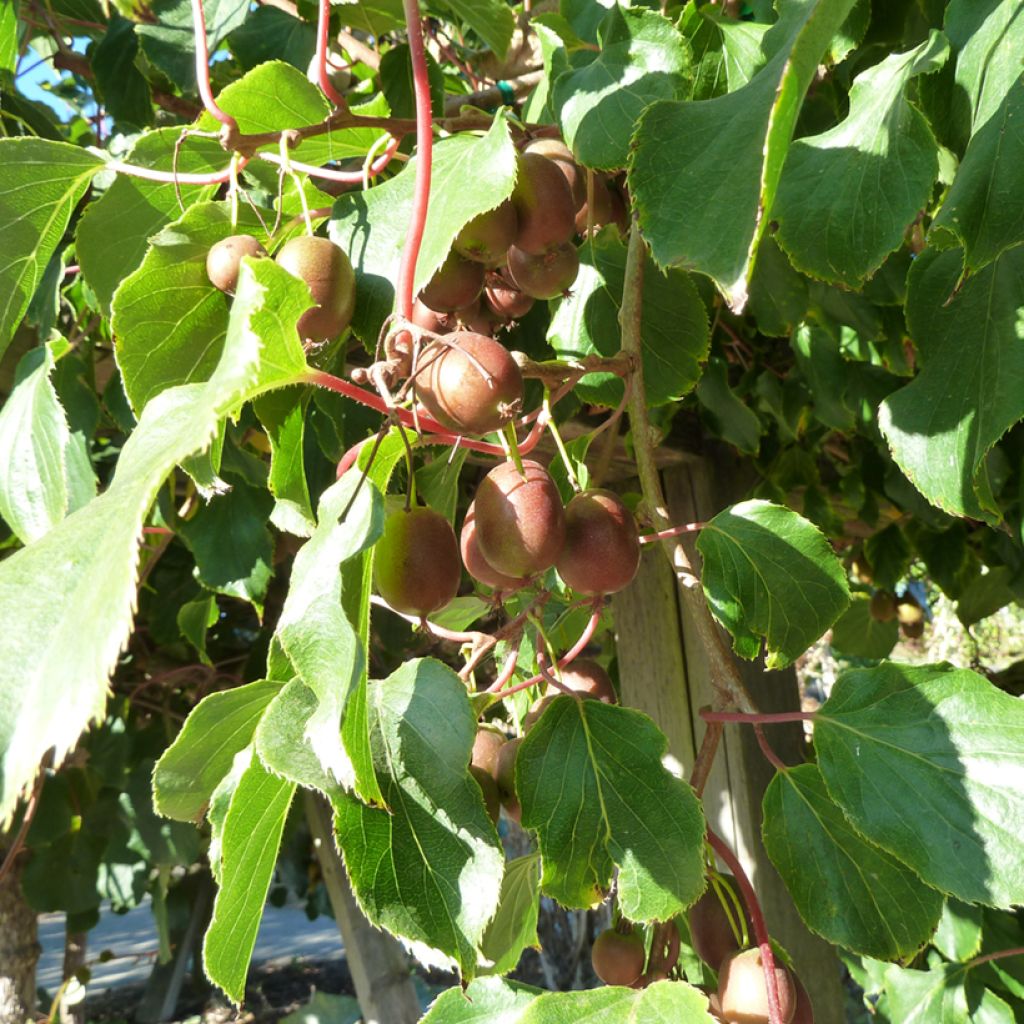

Actinidia arguta Domino
Actinidia arguta Domino
Actinidia arguta Domino
Hardy Kiwi, Kiwi Berry, Arctic Kiwi, Baby Kiwi, Dessert Kiwi, Grape Kiwi, Northern Kiwi
Special offer!
Receive a €20 voucher for any order over €90 (excluding delivery costs, credit notes, and plastic-free options)!
1- Add your favorite plants to your cart.
2- Once you have reached €90, confirm your order (you can even choose the delivery date!).
3- As soon as your order is shipped, you will receive an email containing your voucher code, valid for 3 months (90 days).
Your voucher is unique and can only be used once, for any order with a minimum value of €20, excluding delivery costs.
Can be combined with other current offers, non-divisible and non-refundable.
Home or relay delivery (depending on size and destination)
Schedule delivery date,
and select date in basket
This plant carries a 6 months recovery warranty
More information
We guarantee the quality of our plants for a full growing cycle, and will replace at our expense any plant that fails to recover under normal climatic and planting conditions.
Description
The Actinidia arguta 'Domino' is a female variety of kiwi that requires the presence of a male plant nearby to bear fruit. Its fruits are small, between 2.5 and 3.5 cm long. Their skin is green with a strong purple colour. Their flesh is also green. They can be consumed fresh with their smooth skin or cooked in compote. The harvest takes place from late September to early October. Very hardy and productive, this Siberian kiwi appreciates a sunny and sheltered location with rich, moist, and well-drained soil. Train its branches on support: trellis, pergola, arbour, or stretched wires.
From the Actinidiaceae family, Actinidia arguta, also known as Siberian kiwi, is known for its smooth-skinned fruits, unlike kiwis (Actinidia chinensis or deliciosa) with fuzzy skin. Actinidias are ornamental plants with large leaves and white late-spring flowering. The best example is Actinidia kolomikta, which does not produce fruit. The 'Domino' arguta kiwi (female) is a new Polish cultivar producing long voluble branches reaching 5 to 7 m. Its large green leaves are heart-shaped and dentate, measuring 8 to 10 cm long. They do not persist during winter. In June, creamy white fragrant and melliferous flowers appear in the axils of the leaves.
The fruits of the 'Domino' variety resemble large grapes. Each kiwi can weigh an average of 10 to 14 g. Their skin is smooth and thin and does not need to be removed if you eat them fresh. This is very convenient for picnics. They reach maturity between late September and early October. They can be harvested before fully ripening, as they continue to ripen after being picked. They can be stored for one to two weeks after harvesting. Their green flesh is sweet and rich in calcium and vitamin C. They can also be used in fruit salads, compotes, jams, juices, or fruit tarts. Fruiting generally begins 2 to 3 years after planting. The 'Domino' arguta kiwi is not a self-fertile variety. The presence of a male plant like the Weikii arguta kiwi (male) is essential for pollination. One male plant can pollinate 3 to 6 female plants.
This very hardy fruiting climbing plant has many ornamental advantages. It has luxuriant foliage, and its spring flowering is fragrant. This plant needs to be trained on sturdy support, such as wires along a wall, a trellis, an arbour, a pergola, or a fence. To create a trained hedge, plant one plant every 3 m, including a few male plants, to ensure good harvests.
Report an error about the product description
Actinidia arguta Domino in pictures
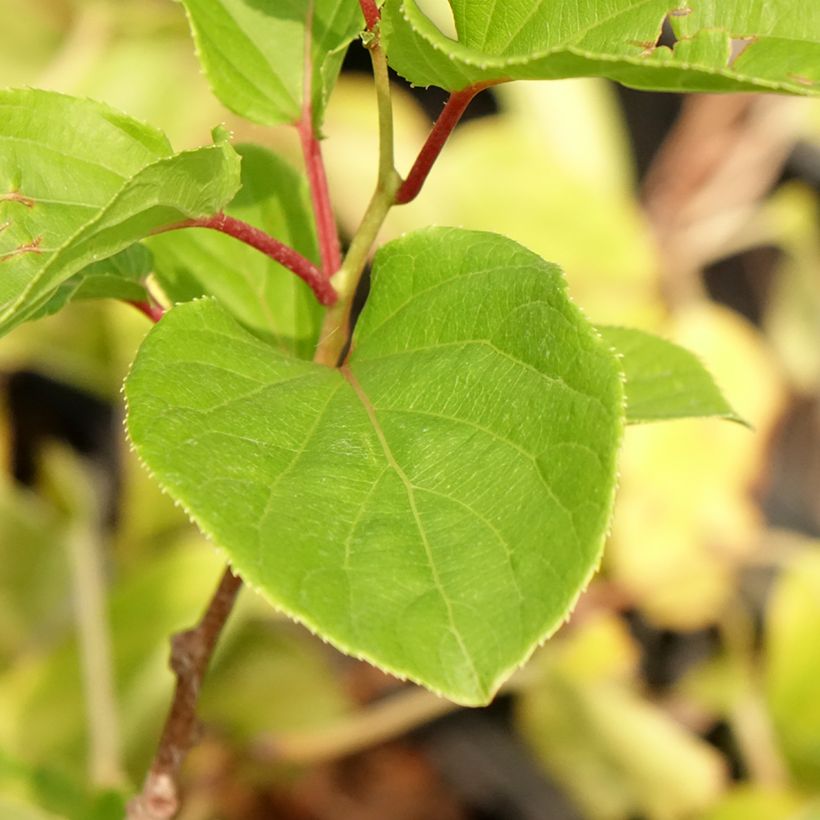

Plant habit
Fruit
Flowering
Foliage
Botanical data
Actinidia
arguta
Domino
Actinidiaceae
Hardy Kiwi, Kiwi Berry, Arctic Kiwi, Baby Kiwi, Dessert Kiwi, Grape Kiwi, Northern Kiwi
Cultivar or hybrid
Other Actinidia arguta - Hardy Kiwi
View all →Planting and care
Plant your 'Domino' Actinidia arguta in rich, somewhat acidic, moist and well-drained soil. It dislikes stagnant moisture and limestone. Plant it in a sunny position sheltered from strong winds. The soil should remain moist in summer; it will be helpful to mulch the base with a layer of mulch 10 to 15 cm thick. Water it in the first years following planting. Once established and rooted, the plant manages on its own except in case of prolonged drought. Provide its base with a fertiliser rich in bonemeal at the start of vegetation. A unique fruit tree fertiliser will also be very beneficial during flowering. Offer your climbing fruit plant support to help its voluble branches climb. Train it, for example, against a wall exposed to the non-burning sun.
Overall, the 'Domino' kiwi is not very sensitive to insects and pests, but red spiders can still be affected in a hot and dry environment. Eliminate them by lightly and regularly spraying water on the foliage and soil.
Planting period
Intended location
Care
This item has not been reviewed yet - be the first to leave a review about it.
Similar products
Haven't found what you were looking for?
Hardiness is the lowest winter temperature a plant can endure without suffering serious damage or even dying. However, hardiness is affected by location (a sheltered area, such as a patio), protection (winter cover) and soil type (hardiness is improved by well-drained soil).

Photo Sharing Terms & Conditions
In order to encourage gardeners to interact and share their experiences, Promesse de fleurs offers various media enabling content to be uploaded onto its Site - in particular via the ‘Photo sharing’ module.
The User agrees to refrain from:
- Posting any content that is illegal, prejudicial, insulting, racist, inciteful to hatred, revisionist, contrary to public decency, that infringes on privacy or on the privacy rights of third parties, in particular the publicity rights of persons and goods, intellectual property rights, or the right to privacy.
- Submitting content on behalf of a third party;
- Impersonate the identity of a third party and/or publish any personal information about a third party;
In general, the User undertakes to refrain from any unethical behaviour.
All Content (in particular text, comments, files, images, photos, videos, creative works, etc.), which may be subject to property or intellectual property rights, image or other private rights, shall remain the property of the User, subject to the limited rights granted by the terms of the licence granted by Promesse de fleurs as stated below. Users are at liberty to publish or not to publish such Content on the Site, notably via the ‘Photo Sharing’ facility, and accept that this Content shall be made public and freely accessible, notably on the Internet.
Users further acknowledge, undertake to have ,and guarantee that they hold all necessary rights and permissions to publish such material on the Site, in particular with regard to the legislation in force pertaining to any privacy, property, intellectual property, image, or contractual rights, or rights of any other nature. By publishing such Content on the Site, Users acknowledge accepting full liability as publishers of the Content within the meaning of the law, and grant Promesse de fleurs, free of charge, an inclusive, worldwide licence for the said Content for the entire duration of its publication, including all reproduction, representation, up/downloading, displaying, performing, transmission, and storage rights.
Users also grant permission for their name to be linked to the Content and accept that this link may not always be made available.
By engaging in posting material, Users consent to their Content becoming automatically accessible on the Internet, in particular on other sites and/or blogs and/or web pages of the Promesse de fleurs site, including in particular social pages and the Promesse de fleurs catalogue.
Users may secure the removal of entrusted content free of charge by issuing a simple request via our contact form.
The flowering period indicated on our website applies to countries and regions located in USDA zone 8 (France, the United Kingdom, Ireland, the Netherlands, etc.)
It will vary according to where you live:
- In zones 9 to 10 (Italy, Spain, Greece, etc.), flowering will occur about 2 to 4 weeks earlier.
- In zones 6 to 7 (Germany, Poland, Slovenia, and lower mountainous regions), flowering will be delayed by 2 to 3 weeks.
- In zone 5 (Central Europe, Scandinavia), blooming will be delayed by 3 to 5 weeks.
In temperate climates, pruning of spring-flowering shrubs (forsythia, spireas, etc.) should be done just after flowering.
Pruning of summer-flowering shrubs (Indian Lilac, Perovskia, etc.) can be done in winter or spring.
In cold regions as well as with frost-sensitive plants, avoid pruning too early when severe frosts may still occur.
The planting period indicated on our website applies to countries and regions located in USDA zone 8 (France, United Kingdom, Ireland, Netherlands).
It will vary according to where you live:
- In Mediterranean zones (Marseille, Madrid, Milan, etc.), autumn and winter are the best planting periods.
- In continental zones (Strasbourg, Munich, Vienna, etc.), delay planting by 2 to 3 weeks in spring and bring it forward by 2 to 4 weeks in autumn.
- In mountainous regions (the Alps, Pyrenees, Carpathians, etc.), it is best to plant in late spring (May-June) or late summer (August-September).
The harvesting period indicated on our website applies to countries and regions in USDA zone 8 (France, England, Ireland, the Netherlands).
In colder areas (Scandinavia, Poland, Austria...) fruit and vegetable harvests are likely to be delayed by 3-4 weeks.
In warmer areas (Italy, Spain, Greece, etc.), harvesting will probably take place earlier, depending on weather conditions.
The sowing periods indicated on our website apply to countries and regions within USDA Zone 8 (France, UK, Ireland, Netherlands).
In colder areas (Scandinavia, Poland, Austria...), delay any outdoor sowing by 3-4 weeks, or sow under glass.
In warmer climes (Italy, Spain, Greece, etc.), bring outdoor sowing forward by a few weeks.






























